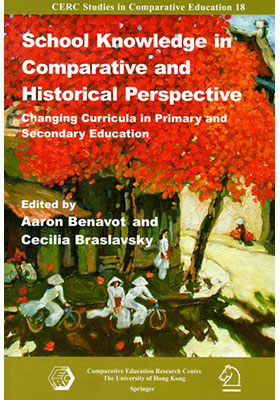School Knowledge in Comparative and Historical Perspective
Changing Curricula in Primary and Secondary Education
(學校知識的比較與歷史:中小學課程的轉變)
ISBN : 978-962-8093-52-6
Distributed for The University of Hong Kong
June 2006
334 pages, 6.5″ x 9.5″
- HK$200.00
School curricula are established not only to prepare young people for a real world, but also to beckon an imagined one anchored in individual rights and collective progress. Both worlds—the real and the imagined—increasingly reflect influential trans-national forces.
In this special edited volume, scholars with diverse backgrounds and conceptual frameworks explore how economic, political, social and ideological forces impact on school curricula over time and place. In providing regional and global perspectives on curricular policies, practices and reforms, the authors move beyond the conventional notion that school contents reflect principally national priorities and subject-based interests. Some authors emphasize a convergence to standardized global curricular structures and discourses. Others suggest that changes regarding the intended contents of primary and secondary school curricula reveal regional or trans-cultural influences. Overall, these comparative and historical studies demonstrate that the dynamics of curriculum-making and curricular reform are increasingly forged within wider regional, cross-regional and global contexts.

